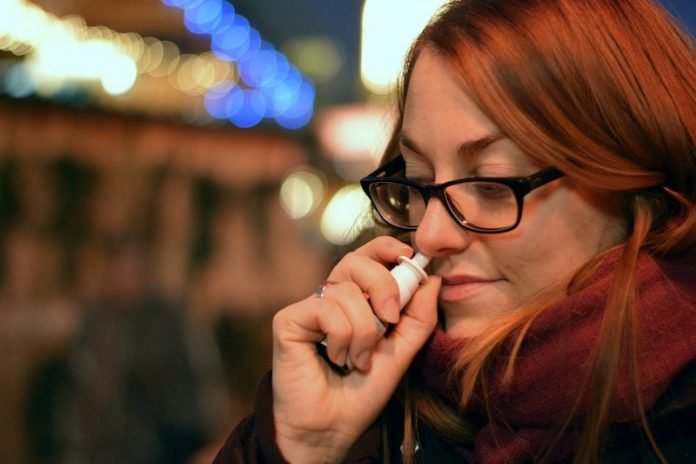
In a new study, researchers developed a testosterone-containing nasal spray to treat anxiety disorders.
It received its second U.S. patent and its first patent in Europe, making it the first testosterone therapy licensed to treat anxiety.
The research was conducted by a team at the University of Texas at Austin and elsewhere.
Testosterone therapy is most often marketed and prescribed to men suffering from “low T”—testosterone deficiency or hypogonadism.
A growing body of research points to testosterone’s importance in the etiology of anxiety disorders.
Research has shown that although there is no difference in anxiety disorders among prepubescents, puberty introduces a sharp uptick in anxiety disorders in girls, who naturally have about one-tenth the amount of testosterone as boys.
The researchers speculated that men’s higher concentrations of circulating testosterone may protect against anxiety and began developing a treatment to address the issue.
Although testosterone is not currently prescribed for anxiety, the team hopes that a short-term, fast-acting testosterone product might be prescribed alongside a lower dosage of benzodiazepines—such as Xanax or Klonopin—for treating anxiety disorders such as PTSD and OCD.
The aqueous-based nasal spray also addresses a current market need for comfortable, controlled, and fast-acting dosages of testosterone for people struggling with “low T” or a decreased libido.
Traditional testosterone supplements, including drops, transdermal creams and gels, injections, and subcutaneous “seeds,” can take days and/or multiple doses to reach full potential.
Testosterone is in high demand, with prescriptions increasing fivefold since 2011.
The nasal spray (U.S. Patent No. 10,258,63, issued April 16, 2019; U.S. Patent No. 10,751,348, issued Aug. 25, 2020) has been licensed to Acerus Pharmaceuticals Corporation, which has the flexibility under the current agreement to use the technology in whatever medical field it deems most appropriate.
A Chinese patent is also forthcoming, paving the way for the psychology professor’s invention to be available worldwide.
One researcher of the study is Robert Josephs, a professor of psychology.
Copyright © 2021 Knowridge Science Report. All rights reserved.



